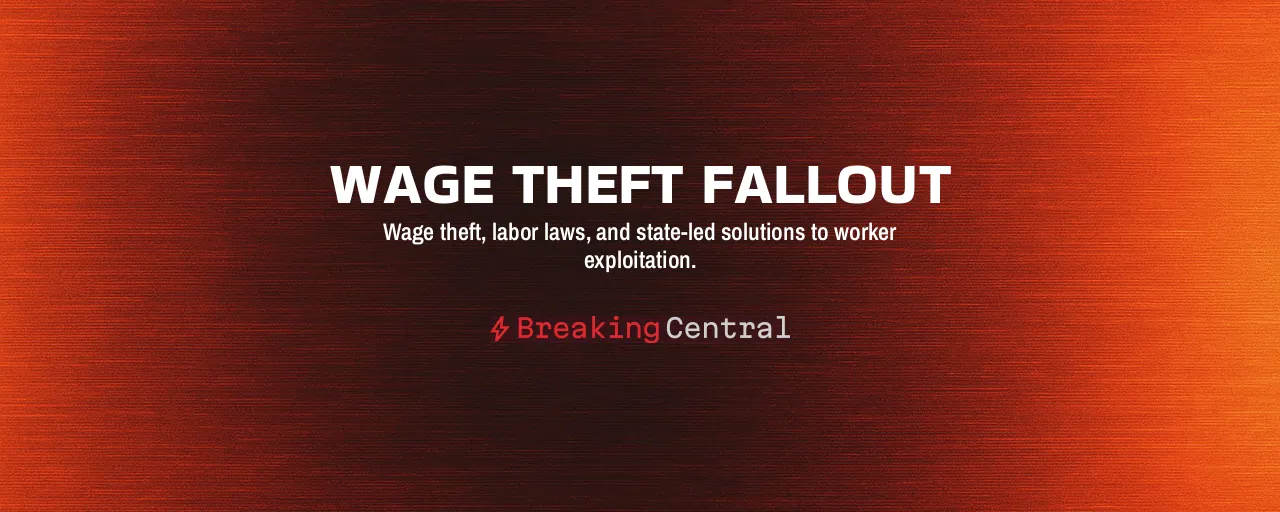Workers Win, System Flaws Exposed
The U.S. Department of Labor just secured $824,276 in back wages and damages for 680 Las Vegas construction workers denied overtime by Spectrum Construction LLC. The drywall contractor also faces $10,060 in penalties for deliberately violating federal law. Painters, drywall hangers, and tapers finally got what they earned, and that's worth celebrating. Yet this case reveals a troubling truth. Federal labor laws are so convoluted that they trap businesses and leave workers exposed to exploitation.
Spectrum paid piece-rate workers without overtime premiums and "banked" hourly workers' overtime, offering time off at straight rates or nothing at all. That breaks the Fair Labor Standards Act, which demands time-and-a-half for hours over 40 a week. The Department of Labor's Wage and Hour Division was right to act. But why does fixing wage theft require such a heavy federal fist? The deeper issue lies in a system that overwhelms employers with red tape while failing to prevent violations in the first place.
Piece-Rate Pitfalls and Small Business Struggles
Piece-rate pay is legal under the Fair Labor Standards Act, provided earnings meet minimum wage and overtime is calculated correctly. In practice, it's a labyrinth. Employers must log every second of "non-productive" time, including rest breaks, safety talks, or travel. States muddy the waters further. California demands separate pay for rest periods, while Washington permits work-week averaging for some workers. For a small contractor crossing state lines, keeping up is nearly impossible. One error can trigger crushing back-wage claims or fines.
Spectrum's violations, ignoring overtime for piece-rate workers and mishandling hourly pay, were clear missteps. But the construction industry's broader challenges put this in context. Studies estimate 1.1 to 2.1 million workers are misclassified or paid off the books, costing them billions annually. Federal audits often hit small firms hardest, while larger companies with legal muscle dodge scrutiny. The Wage and Hour Division, down 14 percent in staff since 2016, can't police everyone. So why not simplify the rules to help businesses comply before workers lose out?
Enforcing piece-rate laws has been tricky since the Fair Labor Standards Act's debut in 1938. Court rulings in the 1940s clarified overtime calculations, but disputes over "regular rate" persist. Today's mobile worksites and gig-style payrolls only heighten the confusion. Small contractors, unlike corporate giants, rarely have the resources to navigate this maze. Punishing them after the fact feels like bureaucracy targeting easy prey.
States Pave the Way for Fair Pay
Advocates for stronger worker protections argue for more federal power, higher penalties, bigger Wage and Hour Division budgets, or even a minimum wage increase. They cite data showing construction workers lose up to $12 billion yearly to wage theft. That's a real problem, no doubt. But more federal rules just inflate costs, shrink job opportunities, and favor big firms that can afford compliance teams. Workers need fair pay, and businesses need clear, manageable rules to deliver it.
The blocked 2024 overtime rule illustrates the issue. It aimed to raise the salary threshold for overtime eligibility, potentially impacting thousands of construction supervisors. Instead, it left employers guessing, forced to adjust payrolls or cut hours amid legal uncertainty. A better approach exists. Proposals like those in "Project 2025" urge shifting wage enforcement to states and scrapping outdated laws like Davis-Bacon that drive up costs. States understand their local economies. They can craft practical rules without Washington's rigid mandates.
Construction's workforce, 25 percent foreign-born, faces unique risks. Undocumented workers often endure wage theft or unsafe conditions, fearing retaliation. Federal fixes, including U-Visas for whistleblowers or OSHA's heat-stress programs, offer assistance. They fail to address root causes. States like Minnesota and California are already acting, holding prime contractors liable and auditing payrolls more effectively. Letting states lead would deliver results without the federal stranglehold.
Building a System That Works for Everyone
The Spectrum case underscores a vital point: workers deserve every cent they earn. But it also exposes a flawed system. Federal labor laws, rooted in the 1930s, struggle to handle modern realities like piece-rate pay or mobile crews. They burden small businesses, discourage hiring, and fail to stop wage theft before it starts. A smarter path exists, one that trusts states to enforce fair pay while giving employers clear rules to follow.
Last year, the Wage and Hour Division recovered millions in back wages, yet that's a fraction of the $50 billion lost to wage theft annually. Prevention beats punishment. Clearer guidelines and state-led enforcement would help businesses get it right from the start, ensuring workers' paychecks reflect their hard work. The aim is to create an economy where jobs and fairness coexist.
What does this mean for the future? Spectrum Construction paid a steep price for its violations, and rightly so. But real progress requires rethinking a system that traps businesses and workers alike. Simplify the rules, empower states, and focus on compliance over crackdowns. That's how we build a workforce where everyone—worker and employer—comes out ahead.
